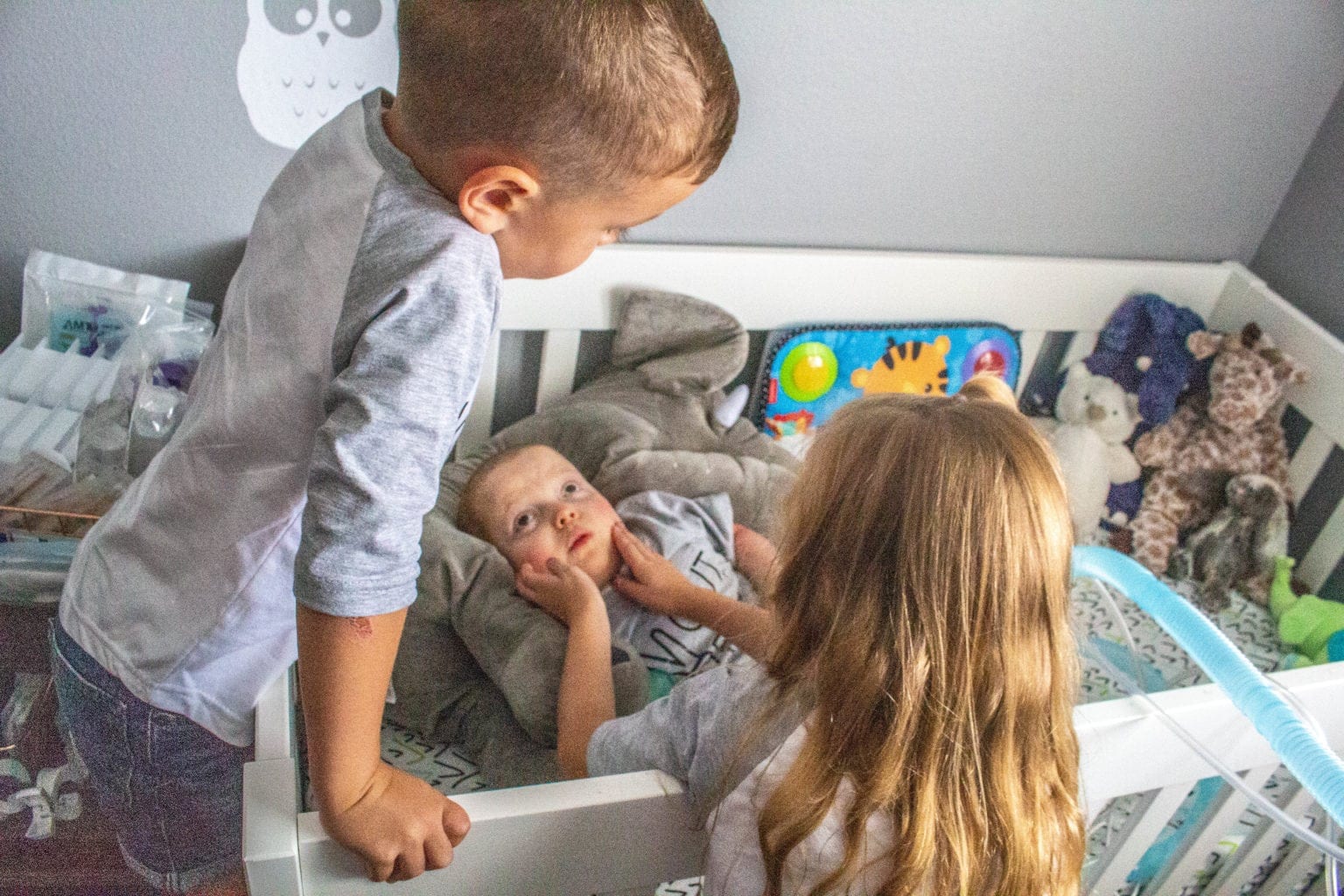Siblings Violet, 6, and August, 4, woke their 2-year-old brother Elliot Newcomb from a long nap with a kiss on both cheeks. Each stood on opposite ends of their brother’s stretcher, giggling and repeating, “Welcome home, Elliot.”
For the first time since birth two and a half years ago, the child had entered his Saugus home on Thursday afternoon.
That’s because Elliot has since been in an intensive care unit for a developed chronic lung disease known as bronchopulmonary dysplasia, or BPD.
According to his mother, Sara, he arrived prematurely and needed help from a respirator to improve his breathing.
BPD, according to the American Lung Association’s website, is common among prematurely born infants, who have “very tiny air sacs at birth.” As a result, the infant requires respiratory support to breathe, which can also cause lung damage.
His condition — on top of other rare diseases — has left Elliot reliant on supplemental oxygen 24 hours a day and with a tracheostomy tube as an alternative airway for breathing.

“It’s been traumatic and hard,” said Sara as she and husband Bryan settled their son into his bedroom.
She recalled the long journey leading up to Thursday, sharing all that had passed already.
“We watched the elections, the Super Bowl, and the World Cup,” said Sara. “We always included him and the hospital staff loved him. They called him the Prince of PICU (Pediatric Intensive Care Unit).”
Elliot had only ever stepped outside the traditional hospital white walls when transferring from Kaiser Permanente Panorama City Medical Center’s Neonatal Intensive Care Unit to the Kaiser Center in Los Angeles’ PICU. According to Sara, Elliot holds the record for remaining the longest in the hospital since birth at the L.A. location.
“I thought he was never going to come home,” said Sara.
Elliot was initially scheduled to arrive home sometime in 2016 and later on Wednesday of this week, but the plan quickly shut down after he suffered a seizure. Something always seemed to get in the way of his arrival, the parents said.
But now he was settled into his home, filled with color and signs that read, “Welcome home Elliot Andrew,” and, “Such a big miracle in such a little boy.”
In his room, Elliot will have his medical ventilator and other equipment, while receiving care from nurses at all times, including monthly visits from respiratory therapist Albina Suprun.

On Thursday, while paramedics helped Elliot to settle in, Suprun went over ventilator procedures and what to do in the case of an emergency.
Despite all the tubes and machines occupying a portion of his bedroom, the 2-and-a-half-year-old is stable for his condition. The goal, Sara said, is to remove his tracheostomy tube and get him off of the ventilator.
In time, Elliot will undergo a series of therapy sessions including for speech and vision.
“Things are looking good,” Bryan said.
It’s also the case for other children facing similar challenges as Elliot.
While Kaiser did not previously ventilate a baby as much as they did with Elliot, they now follow the ventilation protocols of Nationwide Children’s Hospital in Columbus, Ohio, which conducts BPD research. At least one child in Kaiser’s center in Los Angeles is receiving the same care Elliot has received.
“The mother of the child told me that her daughter is alive thanks to following what they did with Elliot,” said Sara. “We hope this changes more lives for others in the future.”
While a long journey yet awaits, the family is happy to now have all members of the Newcombs under one roof.
“We’re most excited to have a routine similar to most families out there,” said Bryan. “We get to spend time together at home, not a hospital.”
To cover the costs of rehabilitation equipment and therapy sessions, the family has started a GoFundMe page. To follow Elliot’s story, visit the Instagram page @love4elliot.








